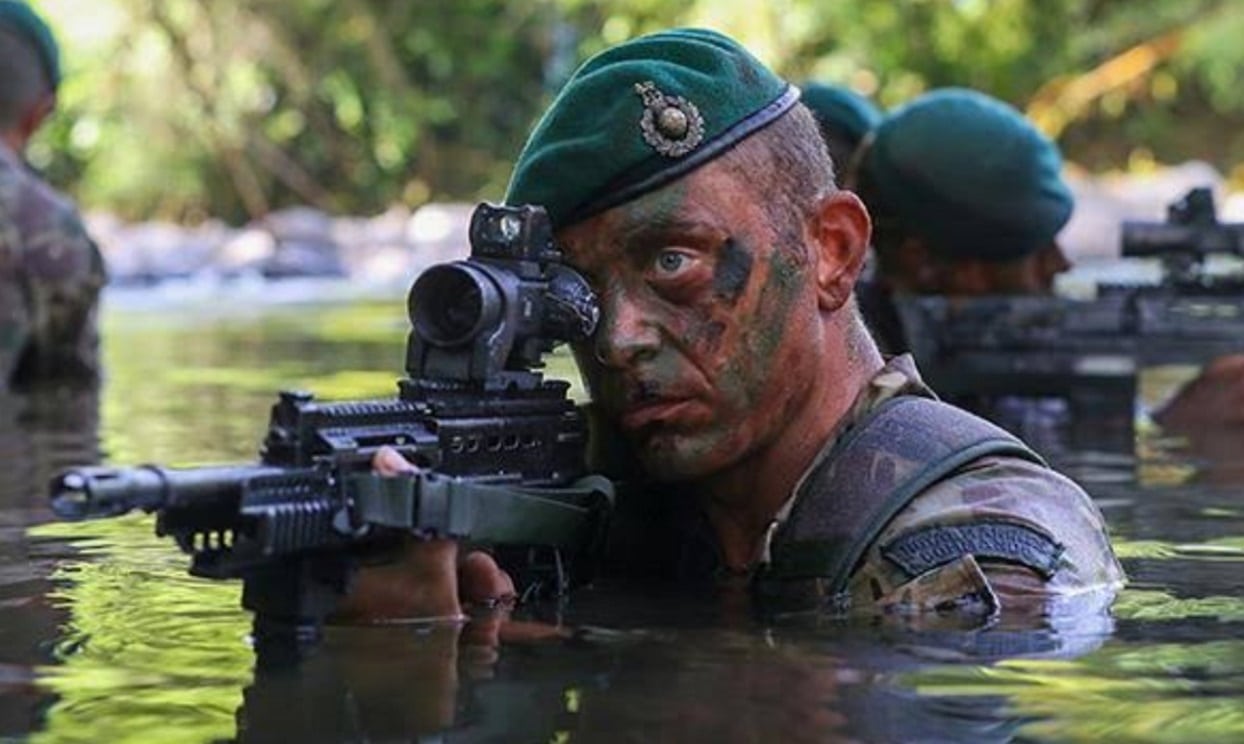The South Korean series Squid Game has become one of the biggest hits that streaming service Netflix has ever presented, but a very real – yet far less deadly – type of game recently unfolded at the U.S. Marine Corps training facility at Twentynine Palms in California’s Mojave Desert. While it wasn’t broadcast, this showdown of military personnel would have likely made for some engaging reality TV.
It featured members of the United States Marine Corps, the Netherlands Marine Corps and British Royal Marines in a five-day battle simulation, which served as the culmination of two months of training. Given that it took place in the aforementioned Mojave Desert would suggest the amphibious forces were a little out of their normal element.
In the end, it seemed that the Royal Marines proved able to best overcome and adapt as they went from controlling 20 percent of the battle area to more than 65 percent.
The U.S. Marines were driven into submission as the members of the Royal Marines’ Littoral Response Group (LRG) reportedly employed new tactics that gave them the edge. There are now two LRG units, which serve as Royal Navy task groups charged with conducting command operations in response to world events.
The LRG North has already deployed to the Baltic this year and with a focus on events across Europe, while LRG South is set to be based in Oman, allowing it to operate east of the Suez Canal. It is expected to be functional next year with the addition of amphibious ships and aircraft.
It was the latter unit – LRG South – that trained with the U.S. forces and proved victorious in the five-day operation dubbed Green Dagger. In addition to the U.S. Marine Corps and Dutch Marines, there were also marine forces from Canada and United Arab Emirates (UAE) who took part in the joint exercises.
Rule Britannia
The Royal Navy announced the Royal Marine Commandos of the LRG had “won decisive battles early on and gained ground from their enemy, but, with the US Marines pushing into allied territory, Royal Marines and their allies carried out raids behind enemy lines to stop further counterattacks.”
In a statement, the Royal Navy also said that the mock “concluded with a last-minute ‘enemy’ assault which was repelled, leaving allied forces in control of over two thirds of the entire ‘battlefield.'” Efforts by the U.S. Marines to push into enemy territory failed, as the Royal Marines carried out raids to stop the counterattacks.
The exercise was conducted over a 3,500-square kilometer zone. It included an urban setting with paid actors playing the role of civilians.
“Our success has proved the new commando force concept is more lethal and sophisticated than ever before and I am immensely proud of every member of the LRG and their vital contributions,” said Lieutenant Colonel Andy Dow, Commanding Officer of 40 Commando. “Operating alongside our partners from the USA, Netherlands, Canada and the UAE gives us a fantastic opportunity to test, integrate and continue to push our capabilities in new and innovative directions.”
Peter Suciu is a Michigan-based writer who has contributed to more than four dozen magazines, newspapers and websites. He regularly writes about military small arms, and is the author of several books on military headgear including A Gallery of Military Headdress, which is available on Amazon.com.

